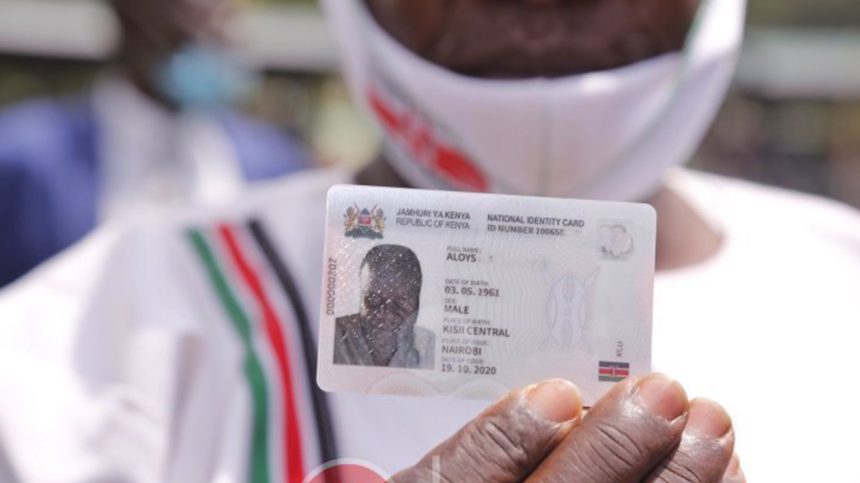Kenya is one of the many countries that are implementing digital ID systems to replace the existing physical identity cards.
The country launched a new card called “Maisha” Card in 2023, in a bid to revolutionize the process of issuing identification documents.
The Maisha Card features a microprocessor electronic chip with encrypted data, a unique personal identifier (UPI) number known as Maisha Namba, and a virtual ID option for those with smartphones.
The government claims that the digital ID card will improve service delivery, enhance security, reduce fraud and corruption, and promote social and economic inclusion.
The card will also enable access to various public and private services, such as health care, education, banking, voting, and social protection.
How It Works
As part of the pilot scheme, all Kenyans turning 18 years old across the country will be issued a Maisha Card from November 2023. This approach identifies and rectifies potential errors or issues before a full-scale launch.
Applicants seeking to replace defaced or lost IDs will also be given new cards.

The Maisha Card will also serve as a digital ID for accessing various government services, such as KRA, NSSF, NHIF, and NEMIS. The Maisha Namba will be assigned to Kenyan citizens upon registration, typically at birth, and will become their lifelong personal identity number from birth to death.
For newborns, Maisha Namba will also serve as their birth certificate number, facilitating registration in educational institutions, NHIF, and transitioning to an ID number once they reach 18.
The government claims that the new system called the National Integrated Identity Management System (NIIMS), will improve service delivery, enhance security, and promote social and economic inclusion.
However, the project has faced legal, ethical, and logistical challenges since its inception.
Lack Of Data Protection
One of the main controversies surrounding NIIMS is the lack of data protection and privacy safeguards. The system collects biometric and demographic data from all children, citizens, and residents of Kenya, and assigns them a unique identification number called Huduma Namba.
The data is stored in a central database that various government agencies and private entities can access. However, there is no clear legislation or policy that regulates how the data will be collected, stored, shared, and used. This raises concerns about the potential misuse or abuse of personal information by unauthorized parties.
In 2021, the High Court of Kenya ruled that the rollout of NIIMS was illegal because there was no clear documentation of the data privacy risks, nor was there a clear strategy for measuring, mitigating, and dealing with those risks. The court also found that the public participation process was inadequate and that some vulnerable groups, such as refugees and stateless persons, could be excluded or discriminated against by the system.
The court ordered the government to enact a comprehensive data protection law and conduct a fresh public participation exercise before proceeding with NIIMS.
Fees For Kenya ID Card
Another controversy is the introduction of a new charge for obtaining or replacing national identity cards. The government announced that from January 2022, applicants would have to pay 100 Kenyan shillings (about $10) for a new or replacement ID card. This sparked a national outcry, as many Kenyans argued that the charge was unfair and unconstitutional.
A petition filed by a surgeon challenged the legality of the charge and argued that it would make ID cards inaccessible to many ordinary citizens. The High Court agreed and issued an order to stop the charge until the case is heard and determined.
Where Are We Now
A Kenyan High Court recently lifted an injunction that prevented the Kenyan government from printing new digital identity cards.
High Court judge John Chigiti reviewed and lifted earlier orders and further directed that the matter be transferred to the constitutional human rights division for hearing and determination.
Following the lifting of the injunction, the government will now accelerate the issuance of the new cards. He said over 60,000 Kenyans had already applied for the ID cards.
Catch up on news and other tidbits on our WhatsApp Community Page, Twitter/X, and subscribe to our weekly newsletter to ensure you don’t miss out on any news.







